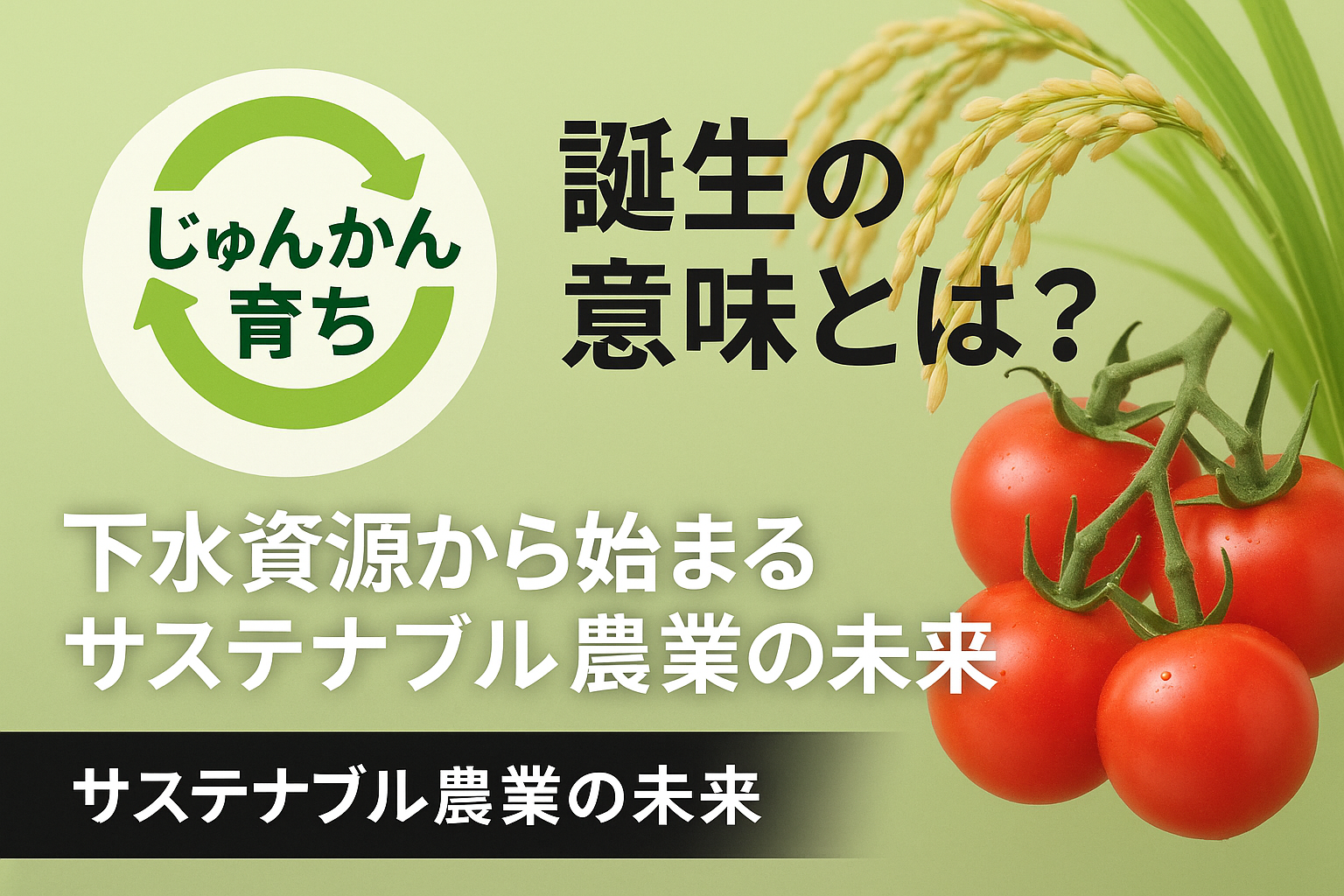The “Junkan” Philosophy Behind an Unfamiliar Food Label
At the supermarket produce section, you might spot tomatoes or rice labeled “Junkan Sodachi”. While the name may sound familiar, many would be surprised to learn that these agricultural products are cultivated using wastewater-derived resources. The recent trademark registration of “Junkan Sodachi” by the Japan Sewage Works Association (JSWA) is more than just a branding move—it conveys a profound message about the environment and society.
From “Unpleasant” to “Resource”: Transforming Public Perception of Wastewater
For many, the word “sewage” still evokes a negative impression. However, minerals and thermal energy from reclaimed water, along with phosphorus and nitrogen found in sewage sludge, are highly beneficial to agriculture. “Junkan Sodachi” is part of a strategic effort to shift perceptions—giving these products new value and a positive image.
The Impact of a Free Trademark: Unifying Brand and Expanding Reach
What makes this trademark registration particularly notable is that it can be used free of charge. This clever approach promotes both branding consistency and widespread adoption. Producers already using the term are encouraged to formally apply, which aids in tracking distribution and collecting data. As a government-led initiative, it strikes a strong balance between transparency and efficiency.
Seven Years in the Making: Branding Born from the “BISTRO Sewer” Project
Though the name “Junkan Sodachi” was selected through a public campaign in 2017, its roots trace back to the 2013 “BISTRO Sewer” strategy. Over a decade of coordinated efforts has finally culminated in an official system. This cross-sector model linking agriculture and infrastructure could serve as a valuable example for local governments.
Overcoming the Psychological Barrier: Transparency and Storytelling as Keys
No matter how safe or delicious the food may be, many consumers may hesitate when they hear “wastewater-derived.” What’s essential here is conveying the narrative of contributing to a circular society. Equally important is transparency in production processes and presenting scientific evidence regarding food safety. Consumer education and effective storytelling will be crucial going forward.
Can We Join the Circle of Sustainability?
“Junkan Sodachi” is more than just a food brand. It represents a symbolic step toward a sustainable future where society reduces environmental burdens. In an era when eating can contribute to resource recycling, the small choices we make as consumers carry meaningful weight.

